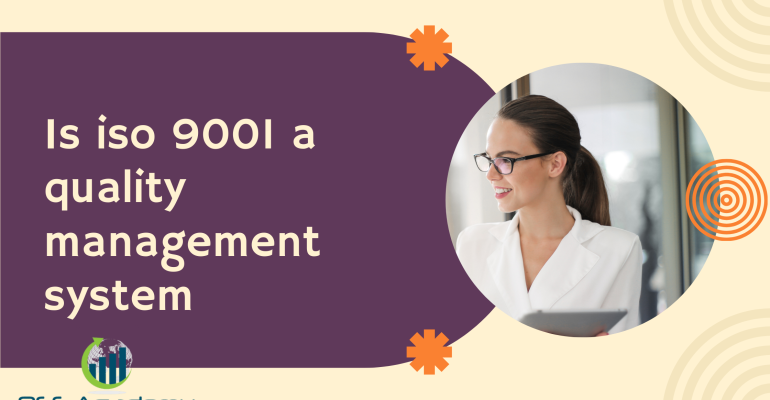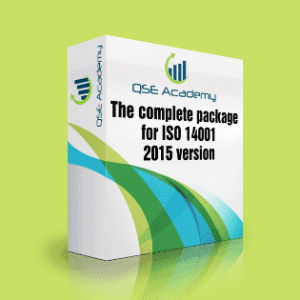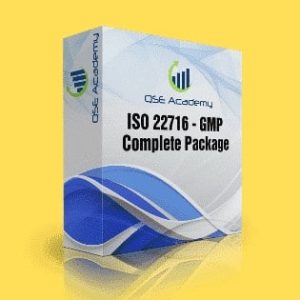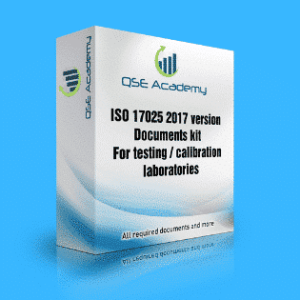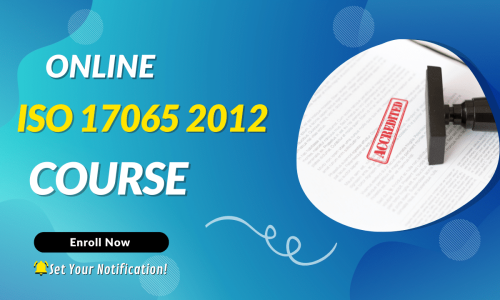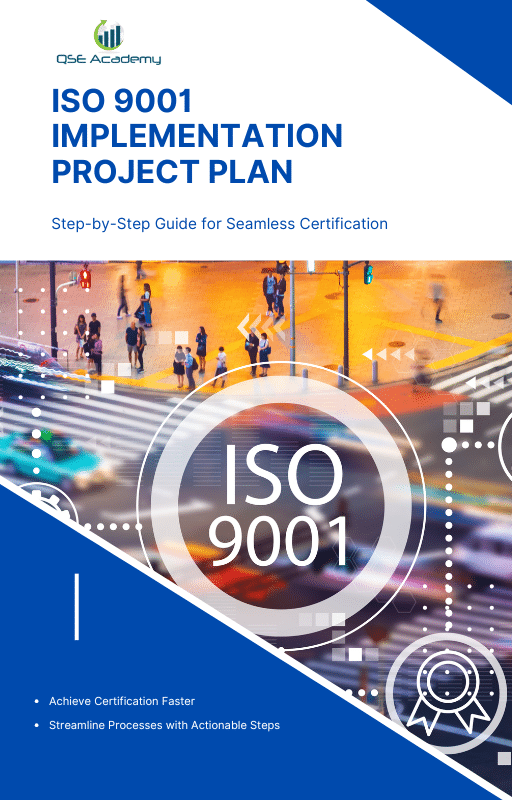Is iso 9001 a quality management system?
Is iso 9001 a quality management system?
You’ve probably come across the term ISO 9001 before, especially if you’ve been looking into ways to improve business processes or ensure better quality in your organization. But that might lead you to wonder: Is ISO 9001 a quality management system? It’s a great question—and one a lot of people get confused about!
Here’s the short answer: ISO 9001 isn’t a physical system or tool that you can install and start using. Instead, it’s a global standard that provides the framework for building and managing a Quality Management System (QMS). Think of it like a blueprint that helps businesses organize their processes, focus on quality, and continually improve.
So, when you ask, Is ISO 9001 a quality management system?, the answer is technically no, but it’s the foundation that helps businesses create one. It’s like having a trusted recipe that guides you step-by-step to bake the perfect cake—except in this case, the end result is a streamlined, effective system that makes sure everything runs smoothly and meets customer expectations.
Over the years, ISO 9001 has become the go-to standard for businesses around the world. Why? Because it’s practical, adaptable, and proven to help organizations deliver consistent quality. Whether you’re running a small shop or a global corporation, using ISO 9001 as a framework for your QMS can transform the way you operate.
In this article, we’ll dive deeper into what ISO 9001 is, how it connects to a QMS, and why so many organizations rely on it to achieve success. Let’s explore the details and finally answer the question: Is ISO 9001 a quality management system?
What Does ISO 9001 Cover?
So now that we’ve got a handle on the question Is ISO 9001 a quality management system?, let’s take a closer look at what ISO 9001 actually covers. Spoiler alert: it’s a lot more than you might think!
ISO 9001 is designed to help businesses create a Quality Management System (QMS) that’s practical, effective, and focused on quality. It’s not just about following rules—it’s about building a system that works for your business and delivers value to your customers. To do this, ISO 9001 is built around a few key principles that guide everything:
1. Customer Focus
One of the most important elements of ISO 9001 is putting customers first. It’s all about understanding their needs, meeting their expectations, and even going above and beyond. After all, happy customers are the backbone of any successful business. A company that uses ISO 9001 as its QMS framework makes sure that customer satisfaction is baked into every process.
2. Leadership and Team Engagement
ISO 9001 emphasizes the importance of strong leadership. Why? Because without clear direction and involvement from management, it’s hard to build a system that runs smoothly. But it’s not just about the leaders—the standard also encourages getting the whole team involved. When everyone understands their role in maintaining quality, it creates a sense of ownership and accountability.
3. A Process-Oriented Approach
To answer the question Is ISO 9001 a quality management system?, you need to understand this key concept: ISO 9001 focuses on processes. Instead of looking at isolated tasks, it encourages businesses to look at how everything connects. For example, how does taking an order flow into production? How does production lead to delivery? By streamlining these processes, companies can ensure everything works efficiently and with fewer hiccups.
4. Continuous Improvement
Here’s where ISO 9001 really stands out. It’s not about meeting a standard once and calling it a day. To build an effective QMS, businesses need to keep improving—whether that means finding ways to reduce errors, speeding up delivery times, or adapting to changing customer needs. ISO 9001 encourages companies to always look for ways to be better.
5. Evidence-Based Decision Making
Another key area ISO 9001 covers is the importance of making decisions based on data. Instead of relying on guesswork, businesses are encouraged to track their processes and measure results. Whether it’s customer feedback or production stats, using solid data helps improve quality and boost efficiency.
6. Building Strong Supplier Relationships
Even if your business runs perfectly, a weak link in your supply chain can cause problems. ISO 9001 highlights the importance of working closely with suppliers and ensuring they meet your standards for quality. It’s all about creating a smooth, reliable flow from start to finish.
So, is ISO 9001 a quality management system? Not exactly—but as you can see, it provides all the tools and principles to create one that works beautifully. By following these guidelines, businesses can ensure that quality isn’t just a goal—it’s something they deliver every single day.
With these areas covered, it’s no wonder so many organizations use ISO 9001 as their roadmap for building a successful QMS. Doesn’t it sound like a smart way to run a business?
How ISO 9001 Translates Into a Quality Management System
Now that we’ve explored what ISO 9001 covers, let’s dive into how it actually translates into a working system. This brings us back to the question, Is ISO 9001 a quality management system? While the standard itself isn’t a physical system you can just install, it serves as a step-by-step guide to building one that fits your business like a glove.
From Guidelines to Action
Think of ISO 9001 as a detailed recipe for success. It lays out all the ingredients and instructions you need to create a Quality Management System (QMS) tailored to your organization. The beauty of it is that it doesn’t dictate exactly how you should run things. Instead, it gives you the flexibility to adapt the framework to your unique processes, goals, and industry.
For example, let’s say you run a small tech company. You can use ISO 9001 to identify areas where quality can be improved, such as streamlining your product development cycle or ensuring customer feedback is handled consistently. A manufacturing business, on the other hand, might use the same standard to refine production workflows and reduce defects. In both cases, the framework remains the same, but the application is completely customized.
Building the Foundation
To be ISO 9001 compliant and have an effective QMS, businesses start by mapping out their processes. This means documenting everything: how products or services are delivered, how risks are managed, and how improvements are tracked. The goal is to create a clear and structured system where everyone knows their role, and nothing is left to chance.
Here’s the thing: when you ask, Is ISO 9001 a quality management system?, you’re really asking how it helps create one. By following ISO 9001’s requirements, businesses ensure that every part of their operations is connected, from leadership and planning to execution and review. This level of alignment not only improves quality but also boosts efficiency and teamwork.
Turning Theory Into Practice
ISO 9001 doesn’t just sit on paper—it’s designed to be put into action. Once a company builds its QMS using the standard, it starts seeing real results. Processes run more smoothly, communication improves, and customer satisfaction becomes a natural outcome of the way the business operates. And because ISO 9001 emphasizes continuous improvement, the system evolves over time to keep up with changing needs.
So, is ISO 9001 a quality management system? Not directly, but it’s the ultimate toolkit for creating one. It’s like having a trusted mentor guiding you through the process of building a strong, reliable system that sets your business up for success. Whether you’re just starting out or refining an existing system, ISO 9001 is your roadmap to achieving consistent, high-quality results.
At the end of the day, ISO 9001 helps businesses move from good intentions to great execution. And isn’t that what every organization strives for?
Why Do Organizations Need ISO 9001 for Their QMS?
Let’s get to the heart of the matter—why do so many businesses use ISO 9001 as the foundation for their Quality Management System (QMS)? And, more importantly, is ISO 9001 a quality management system that every organization needs? The answer lies in the value it brings to businesses of all shapes and sizes.
1. Consistency, Consistency, Consistency
One of the biggest reasons organizations turn to ISO 9001 is to create consistency in their operations. Nobody likes surprises when it comes to quality, right? ISO 9001 provides a framework that ensures every process is predictable, efficient, and consistent. Whether you’re producing physical goods or delivering services, using ISO 9001 as your QMS foundation helps ensure you’re delivering the same high standards every single time.
For example, imagine a customer orders a product from your company. Thanks to ISO 9001, you’ve built a system where every step—from design to delivery—works like a well-oiled machine. That means fewer mistakes, fewer delays, and happier customers. So while ISO 9001 isn’t a QMS itself, it’s the backbone that ensures your QMS runs smoothly.
2. Improving Customer Satisfaction
At its core, ISO 9001 is all about the customer. By building your QMS around ISO 9001’s principles, you’re making sure that your customers’ needs are always the focus. The standard encourages you to actively seek feedback, solve problems quickly, and continuously improve your processes. This means your customers are more likely to walk away satisfied—and even better, come back for more.
So when someone asks, Is ISO 9001 a quality management system?, you can confidently say, “No, but it’s how we make sure our QMS delivers an amazing customer experience.”
3. Boosting Efficiency and Cutting Costs
Another huge benefit of ISO 9001 is how it helps businesses streamline their operations. By focusing on clear processes and continuous improvement, companies can eliminate unnecessary steps, reduce waste, and work more efficiently. Over time, this doesn’t just save money—it also frees up resources to focus on what really matters, like growing the business or delivering even better products and services.
Here’s the magic: while ISO 9001 isn’t a quality management system itself, it provides the tools to build one that cuts through the chaos and makes your business run like clockwork.
4. Gaining a Competitive Edge
In today’s crowded marketplace, standing out can be tough. That’s where ISO 9001 comes in. Being certified to this standard shows customers, partners, and stakeholders that your business is serious about quality. It’s like a badge of honor that says, “We’ve got our act together.” For many organizations, this can be the difference between winning or losing a contract—or even opening doors to new markets.
If you’ve ever wondered why companies invest in ISO 9001, this is a big reason. While it might not be a quality management system in itself, it’s the gold standard for proving that your QMS meets international expectations.
5. Driving Continuous Improvement
Here’s something every organization can benefit from: the ability to get better, year after year. ISO 9001 isn’t about maintaining the status quo—it’s about striving for improvement. By following its framework, businesses are encouraged to track their performance, identify areas for growth, and adapt to changes. This commitment to continuous improvement is what sets ISO 9001-based QMSs apart.
So, is ISO 9001 a quality management system? Not exactly. But it’s the foundation, the framework, and the guide that helps businesses build one that works. It’s the reason so many organizations around the world rely on ISO 9001 to improve efficiency, deliver quality, and keep customers happy. In short, if you’re looking to take your operations to the next level, ISO 9001 is your answer. Who wouldn’t want that?
Real-Life Examples of ISO 9001 in Action
Let’s bring this to life! So far, we’ve explored the question Is ISO 9001 a quality management system? and talked about how it serves as the framework for building one. But what does that look like in the real world? How do businesses actually use ISO 9001 to make a difference? Let’s dive into some relatable examples to see how it all works.
1. A Manufacturing Company Ensures Consistency
Picture a manufacturing company that produces high-tech gadgets. Before implementing ISO 9001, they struggled with inconsistencies—some products worked flawlessly, while others had defects. By adopting ISO 9001 as the foundation for their Quality Management System, they mapped out every step of their production process, pinpointed inefficiencies, and put quality checks in place.
Now, thanks to their ISO 9001-based QMS, every gadget that leaves their factory meets the same high standards. Their customers are happier, and their reputation has skyrocketed. While the answer to Is ISO 9001 a quality management system? remains “no,” it’s clear that this standard plays a crucial role in building one that works seamlessly.
2. A Small Business Builds Customer Trust
ISO 9001 isn’t just for big companies! Take a small family-owned bakery, for example. Before ISO 9001, they handled everything informally—recipes were in someone’s head, and customer feedback rarely made its way to the decision-makers.
By following the ISO 9001 framework, they created a Quality Management System tailored to their needs. Now, their recipes are documented, their supply chain is organized, and they’ve set up a process for responding to customer feedback. This has helped them build trust and loyalty with their customers. So, even though ISO 9001 itself isn’t the QMS, it helped this small business create one that transformed the way they operate.
3. A Service Provider Improves Efficiency
Let’s look at a service-based business, like an IT support company. Before using ISO 9001, they often faced delays in responding to clients because their processes were scattered. By implementing a QMS guided by ISO 9001, they streamlined how they handle support tickets, improved communication between teams, and set measurable goals to track their performance.
As a result, they’re resolving issues faster, getting better client reviews, and even attracting new business. This is a prime example of how ISO 9001 helps organizations build a QMS that works for them, even in non-manufacturing industries.
4. A Healthcare Organization Ensures Patient Safety
In the healthcare industry, consistency and quality can literally save lives. A hospital that chose to follow ISO 9001 used the framework to standardize procedures for patient care, from admission to discharge. They also implemented a system for tracking incidents and continuously improving their practices.
The result? Patients experience better care, staff members feel more confident in their roles, and the hospital has seen measurable improvements in safety and efficiency. While ISO 9001 isn’t a quality management system by itself, it gave this organization the structure they needed to create one that works flawlessly.
As you can see, the answer to Is ISO 9001 a quality management system? might technically be no, but its impact on businesses is undeniable. Whether it’s a factory, a bakery, an IT company, or a hospital, ISO 9001 provides the tools and structure to build a QMS that delivers real results. It’s not just about following rules—it’s about creating systems that make sense, work efficiently, and keep getting better.
The beauty of ISO 9001 is that it’s flexible enough to work for any industry or organization. So, if you’re wondering whether it’s worth exploring for your own business, these real-life examples should give you a resounding “yes!” Why not take the next step and see how it could transform your operations?
Common Misconceptions About ISO 9001 and QMS
Let’s clear up some confusion. When talking about ISO 9001 and Quality Management Systems (QMS), there are a lot of misconceptions floating around. It’s easy to see why someone might ask, Is ISO 9001 a quality management system?—the two are so closely related that the lines can blur. But let’s set the record straight and bust a few myths while we’re at it.
1. Myth: ISO 9001 Is Only for Large Companies
One of the biggest misconceptions is that ISO 9001 is designed only for big corporations with massive budgets. Not true! Businesses of any size can implement ISO 9001 and create a QMS that fits their operations. Whether you’re a local coffee shop or a global tech giant, ISO 9001 can help you run things more efficiently and focus on delivering consistent quality.
So, while it’s fair to wonder, Is ISO 9001 a quality management system just for big players?—the answer is absolutely not. It’s for everyone.
2. Myth: ISO 9001 Is Just About Paperwork
You’ve probably heard the complaint that ISO 9001 means endless documentation and administrative headaches. While documentation is part of building a QMS, it’s not about creating piles of paperwork that nobody uses. Instead, it’s about documenting what’s important so that processes are clear, consistent, and easy to follow.
Think of it like writing down your grandma’s famous cookie recipe—it’s not about overcomplicating things; it’s about making sure you can replicate the same delicious results every time. This is how ISO 9001 helps turn a business’s operations into a well-structured system.
3. Myth: ISO 9001 Is the Same as a QMS
This is where a lot of the confusion happens. Many people assume that ISO 9001 itself is the QMS, but that’s not quite accurate. ISO 9001 is the framework or guideline that helps businesses build and maintain their own QMS. It’s the map, not the destination.
When people ask, Is ISO 9001 a quality management system?, it’s important to clarify that it’s not the system itself but the standard that shapes how the system is designed and managed.
4. Myth: Certification Means You’re Done
Here’s another big one: some people think that once you’ve achieved ISO 9001 certification, you’re set for life. Nope! Certification is just the beginning. To maintain certification and keep your QMS effective, you need to keep improving, adapting to changes, and staying committed to quality. ISO 9001 encourages a mindset of continuous improvement—it’s not a one-and-done deal.
5. Myth: It’s Too Complicated
Some businesses shy away from ISO 9001 because they think it’s too complex to implement. While it does take effort, it’s far from impossible. The standard is designed to be flexible, meaning you can tailor it to fit your business, no matter the industry or size. With the right guidance and tools, building a QMS with ISO 9001 can actually simplify your operations rather than complicate them.
So, what’s the takeaway here? While there’s plenty of confusion around ISO 9001, it’s clear that the standard plays a vital role in building effective quality management systems. The next time someone asks, Is ISO 9001 a quality management system?, you can confidently say, “No, but it’s the framework that helps businesses create one that truly works.”
By breaking through these myths and misconceptions, more businesses can embrace ISO 9001 and unlock its full potential. And honestly, who doesn’t want a clearer, more efficient, and customer-focused way to run their business? It’s a win all around!
Steps to Implement ISO 9001 as a Quality Management System
If you’ve been wondering, Is ISO 9001 a quality management system?, you now know that it’s not the system itself—it’s the framework to help you build one. But how exactly do you get started? Don’t worry—it’s not as overwhelming as it might seem. Let’s break it down into a few simple steps to get your business on the path to creating a solid, ISO 9001-based Quality Management System (QMS).
Step 1: Understand the Requirements
The first step is to get familiar with what ISO 9001 is all about. Think of it like reading the instructions before assembling furniture—it saves a lot of time and frustration later! ISO 9001 outlines specific requirements that your QMS needs to meet, like maintaining customer focus, improving processes, and involving leadership. This foundation will help guide your efforts as you start building your system.
By understanding these requirements, you’ll have a clear roadmap to create a QMS that works for your business. After all, the answer to Is ISO 9001 a quality management system? is no, but it’s definitely the backbone of one!
Step 2: Conduct a Gap Analysis
Next, take a closer look at your current processes. A gap analysis helps you compare what you’re already doing with what ISO 9001 requires. This is where you identify what’s working, what’s not, and where improvements are needed.
For example, do you already have a process for handling customer feedback? Is there a way to track errors or inefficiencies? If not, these are areas you’ll need to focus on. Think of this step as figuring out what pieces of the puzzle are missing before you build the full picture.
Step 3: Get Everyone on Board
Implementing a QMS based on ISO 9001 isn’t a one-person job—it’s a team effort. Leadership needs to set the tone and show their commitment to quality, while employees need to understand their role in the process.
One of the key principles of ISO 9001 is involving everyone in the organization. When your team is on the same page, it makes the implementation process smoother and helps ensure long-term success. Plus, it’s easier to create a quality-driven culture when everyone feels like they’re part of the journey.
Step 4: Design and Document Your QMS
Here’s where you start putting everything together. Using the ISO 9001 framework, you’ll design a QMS that fits your business. This includes documenting your processes, like how you manage customer orders, resolve complaints, or monitor performance.
But don’t worry—this doesn’t mean drowning in paperwork. The goal is to create clear, practical documentation that helps your team follow processes consistently and efficiently. A well-documented system is key to answering the question Is ISO 9001 a quality management system? with confidence—it’s the tool that makes it all come together.
Step 5: Implement the System
Now it’s time to put your QMS into action! This means training your employees, following the documented processes, and making quality a part of your day-to-day operations. During this phase, you might notice areas that need fine-tuning, and that’s okay—it’s all part of the journey.
Step 6: Prepare for the Audit
To become ISO 9001 certified, your QMS will need to go through an external audit conducted by a certification body. This might sound intimidating, but it’s really just a way to ensure your system meets the standard. The auditor will check things like how you document processes, handle customer feedback, and monitor performance.
This step is where all your hard work comes together, and once you pass, you’ll officially have an ISO 9001-certified QMS!
Step 7: Maintain and Improve
Here’s an important thing to remember: creating a QMS isn’t a one-time project—it’s an ongoing commitment. ISO 9001 emphasizes continuous improvement, so you’ll need to keep reviewing your processes, adapting to changes, and finding ways to get better.
So, is ISO 9001 a quality management system? No, but it’s the ultimate guide to creating one that works. By following these steps, you can build a QMS that not only meets the standard but also makes your business more efficient, customer-focused, and successful. Doesn’t that sound like a win? Let’s get started!
Conclusion: Is ISO 9001 a Quality Management System?
So, let’s circle back to the big question: Is ISO 9001 a quality management system? By now, you probably have a pretty clear answer—it’s not a QMS itself, but it’s the framework that helps businesses build one. Think of ISO 9001 as the guidebook that organizations use to create systems focused on quality, consistency, and continuous improvement.
With ISO 9001, you’re not just following a set of rules—you’re setting your business up for long-term success. It’s about creating a structured approach to managing processes, ensuring customer satisfaction, and driving efficiency across every part of your operations. And the best part? It works for businesses of all sizes and industries, whether you’re running a small local shop or a global corporation.
When businesses ask, Is ISO 9001 a quality management system?, what they’re really asking is whether ISO 9001 can help them improve how they work. And the answer to that is a resounding yes. It’s the trusted standard that gives you the tools to design a QMS that’s tailored to your unique needs while ensuring you meet international benchmarks for quality.
At its core, ISO 9001 is about more than just certification—it’s about building trust, improving processes, and setting your organization apart as one that prioritizes quality at every step. So, if you’ve been considering implementing ISO 9001, there’s no better time to start. With the right framework in place, your business can achieve consistency, boost customer satisfaction, and create a culture of continuous improvement.
So, the next time someone asks you, Is ISO 9001 a quality management system?, you can smile and say, “Not exactly—but it’s the foundation for building one that works brilliantly!” Doesn’t that make ISO 9001 sound like a tool worth having? It’s the perfect way to take your business to the next level!
Looking for More Resources on ISO 9001?
Looking for ISO 9001 Resources Tailored to Your Industry?
If this article helped clarify ISO 9001, take the next step with our industry-focused tools designed to simplify your certification journey:
📦 ISO 9001 Documentation Kits by Industry: Whether you’re in manufacturing, construction, consulting, or healthcare — we have complete, ready-to-use documentation tailored for your sector.
🎓 Online ISO 9001 Training: Learn how to implement ISO 9001 effectively with our easy-to-follow video lessons, real-world examples, and practical exercises.
📋 ISO 9001 Checklist: Download our step-by-step checklist to ensure your QMS meets all the 9001:2015 requirements from start to finish.
These resources are crafted to save you time, reduce stress, and help you achieve certification with confidence. Choose your industry and start now!

make ISO standards less intimidating and more approachable for everyone.
Whether it’s ISO 9001, ISO 22000, or the cosmetics-focused ISO 22716,
I’ve spent my career turning complex jargon into clear, actionable steps
that businesses can actually use. I’m not here to call myself an expert—I prefer “enthusiast” because I truly love what I do.
There’s something incredibly rewarding about helping people navigate food safety and quality management systems
in a way that feels simple, practical, and even enjoyable.
When I’m not writing about standards, you’ll probably find me playing Piano 🎹, connecting with people, or diving into my next big project💫.
- I’m an engineer specialized in the food and agricultural industry
- I have a Master’s in QHSE management and over 12 years of experience as a Quality Manager
- I’ve helped more than 15 companies implement ISO 9001, ISO 22000, ISO 22716, GMP, and other standards
- My clients include food producers, cosmetics manufacturers, laboratories, and service companies
- I believe quality systems should be simple, useful, and efficient
- Outside of work, I play piano and love learning something new every day
Let’s make ISO less about stress and more about success! 🙏

